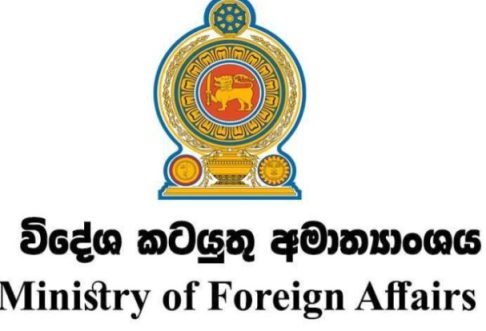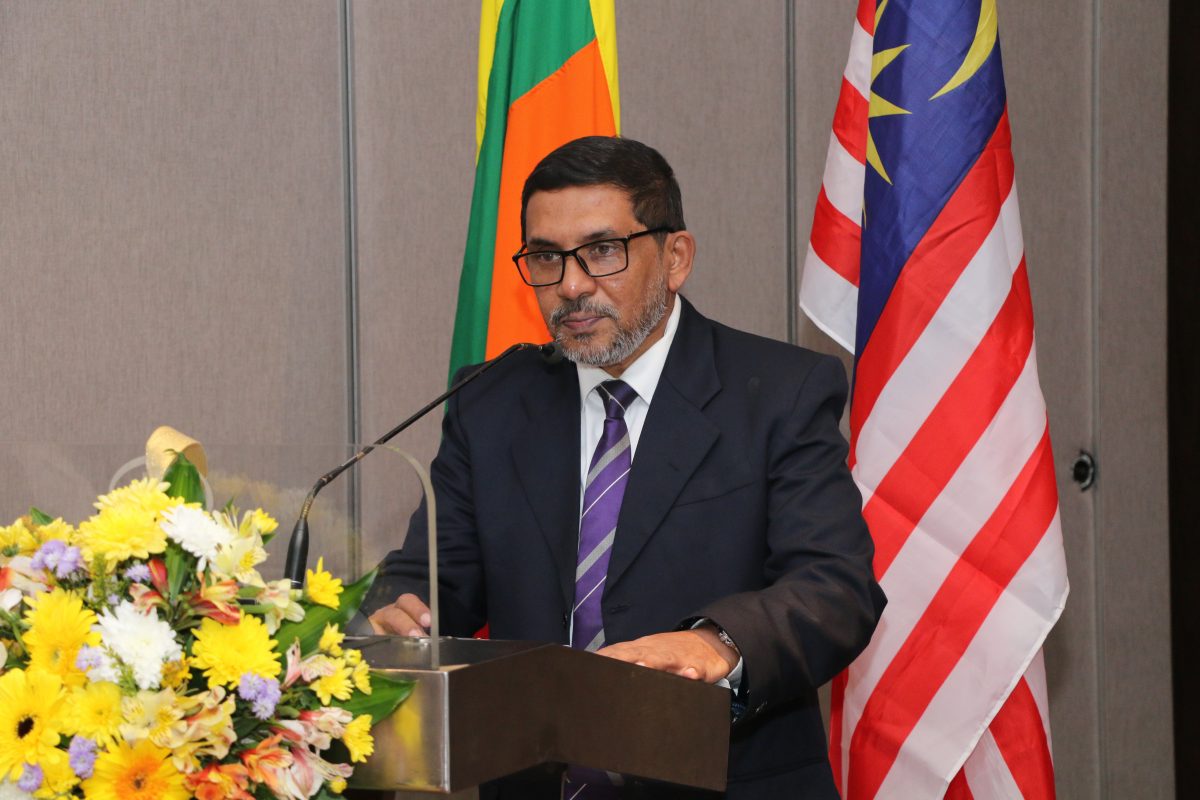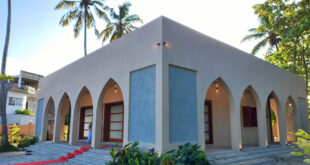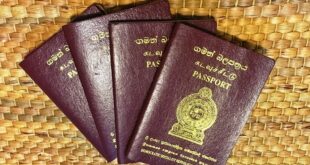The war has officially ended, stirring hopes of the millions of Sri Lankans, who have suffered immensely for the past three decades. While the people rejoice the end of war, it was also time for stock-taking. There were many paths to victory and many people paid the supreme sacrifice that eventually led to what is regarded as the greatest victory of Mother Lanka.
The contribution of the Muslims in keeping this nation united and resisting terrorism should not go unmentioned at a time when the nation celebrates victory. Since the State Council days, the Muslims of this country have stood for an undivided Sri Lanka, much as their ancestors who even fought alongside the Sinhala kings against the European invaders. Muslim leaders like T. B. Jayah and Sir Razeek Fareed had resisted moves which they saw as a threat to a united Sri Lanka. They stood for a country where the Sinhalese, the Tamils and the Muslims would live like a children of one mother. They opposed the so-called 50-50 representation proposal that certain Tamil leaders placed as a political solution. They supported legislation that made Sinhala the official language but they also backed the Tamil Language Special Provision Bill. The Muslims also did not oppose the 13th Amendment which called for greater devolution of power to provinces, in spite of the fact that this amendment offered very little advantages to the Muslim community. Yet, for the sake of peace and national unity, the Muslims went along with proposals put forward by different governments at different times. Even today, almost all Muslim parliamentarians, whether they are on the government side or in opposition, support the government’s move aimed at ending terrorism and restoring peace.
The Muslims’ willingness to play the second fiddle in the Eastern Province following the elections there even though they had the combined strength to rightfully claim the chief minister’s post is just another example that depicted Muslim patriotism and their accommodative spirit.
Though it is unfortunate that the ethnic proportionality of the nation is not reflected in the composition of the country’s security forces, it cannot be said there aren’t any Muslims in the armed forces. Hundreds of Muslims who had joined the police and the military have laid their lives to protect the sovereignty and the territorial integrity of this country.
Scores, if not hundreds of Muslim policemen, were killed when they together with their Sinhala colleagues surrendered to the LTTE in 1991 on the advice of the then government.
It should also not go unmentioned that the Army’s Long Range Reconnaissance Patrol unit which dealt blow after blow to the LTTE was spearheaded by a Muslim officer. The contribution and sacrifice of Muslim security forces officers such as the late Col. Muthalif and Chief Inspector Nilamdeen of the anti-terror unit are well enshrined in the history of Sri Lanka.
The suffering and the hardship the Muslims underwent in the north and the east as a result of the war are too many. In 1990, nearly 90,000 Muslims were expelled from Jaffna in what could be termed as ethnic cleansing. Tens of thousands of Muslims living in other areas of the north were also expelled, while in the east, they became victims of the war. Muslims of Sampur and Muthur were made refugees overnight and while Eravur and Kattankudy witnessed massacre after massacre of Muslims.
The Muslims in the east were terrorized by various armed groups. They were intimidated and their land and wealth were robbed at gunpoint. Hundreds of Muslim youths were abducted and killed, simply because they stood for the unity of Sri Lanka, simply because they opposed separatism.
We Muslims not only stand for unity and national harmony, but we also stand as a bridge that can bring the Sinhalese and the Tamils together. The Muslims of this country have a long history of living in harmony with both the Sinhalese and the Tamils. It is no secret that language has been a major barrier that has stood in the way of national reconciliation between the Sinhalese and the Tamils. But a majority of the Muslims in Sri Lanka are trilingual. This has helped them maintain cordial communal relationship with both the Sinhalese and the Tamils.
We are pleased to hear the statement made by President Mahinda Rajapaksa during his address to the nation from parliament on May 19, 2009 that this country has no minorities; it has only two types of people – those who love this country and those who do not love this country. The President indeed uttered what the Muslims of Sri Lanka have always stood for and advocated.
Post Disclaimer | Support Us
Support Us
The sailanmuslim.com web site entirely supported by individual donors and well wishers. If you regularly visit this site and wish to show your appreciation, or if you wish to see further development of sailanmuslim.com, please donate us
IMPORTANT : All content hosted on sailanmuslim.com is solely for non-commercial purposes and with the permission of original copyright holders. Any other use of the hosted content, such as for financial gain, requires express approval from the copyright owners.
 Sri lanka Muslims Web Portal Sri Lanka Muslims News Center
Sri lanka Muslims Web Portal Sri Lanka Muslims News Center




Afrah Niwas Says:
“We Sri Lankan Muslims in general lack the essence of being a Sri Lankan”.
Please speak for yourself.
I come from a family of Government servants spanning 4 generations.
I am over 70 and have always believed that I am a Ceylonese/SriLankan speaking 3 languages and living in a beautiful undivided motherland and I have lived in harmony with brothers and sisters from the Sinhala Tamil and other communities.This has been and will always be my own motherland. I am what I am today because of everything this land and its’s people bestowed on me, from the day I was born.
And this is where I would wish my bones to be interred!
comment updated – Status Removed.
Admin – SMF
Salaam Alaikum
Maashallah excellent article. I must say I am proud to be a Muslim from Sri Lanka. May Allah SWT grant paradise to the brothers that lost their lives in this conflict.
One angle that is sometimes forgotten for the Muslims is the Islamic perspective on loyalty to the state where one is living and has citizenship or has obtained a permit to live in. A certificate of citizenship or visa (permit) is basically a mutual agreement between the individual and the state that both parties will look after the interests of the other. It is an oath of allegiance that is not to be taken lightly and should not be used to cause problems in the land.
Allah SWT says in the Quran:
[16:91] Fulfil the Covenant of Allah when ye have entered into it, and break not your oaths after ye have confirmed them; indeed ye have made Allah your surety; for Allah knoweth all that ye do.
Allah SWT also says in the Quran:
[16:94] And take not your oaths, to practice deception between yourselves, with the result that someone’s foot may slip after it was firmly planted…(to the end)
The above would apply to all Muslims living in any country, even in Israel (there are Muslims who have Israeli citizenship and there are Palestinians who have permits to enter Israel for employment). We must abide by what Allah SWT has revealed to the best of our abilities. It can be clearly seen that Muslims will never betray the government of their host country. By doing this we will be protecting ourselves. Allah SWT gave us the best religion to both live in peace with our neighbors and to eventually show others that Islam is the best way.
Allah SWT and His Messenger (S) knows best
Thanks for this article. It has information about Muslim participation in the Governmental security apparatus during the war that is not easily found elsewhere.
Muslims serving in the armed forces and other governmental services in Sri Lanka/Sailan are not required to relinquish their Muslim identities. However in the execution of their duties they do not have to necessarily display and flaunt a separate Muslim identity. While at work, and in their official garbs, their work identities and roles supercede their other more personal identities and roles, I would assume.
Other Muslims and the general public should become aware of the Muslim identities of such governmental officers.